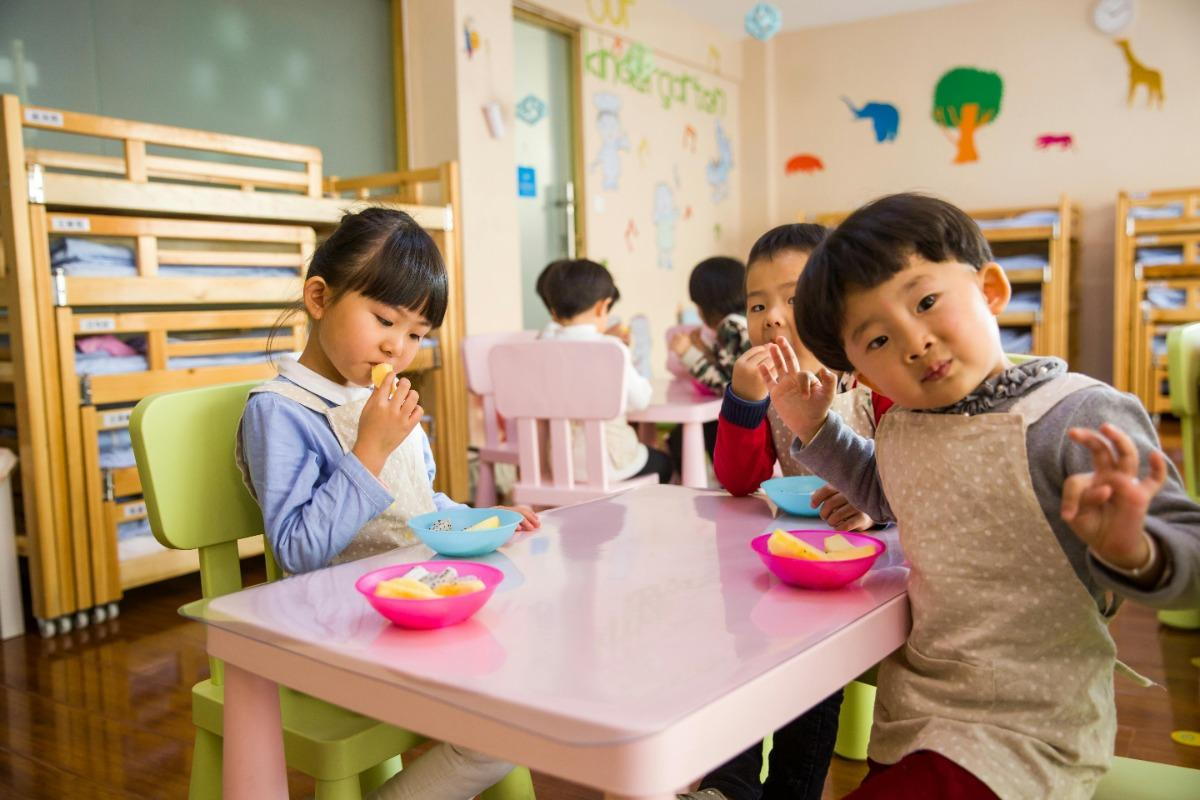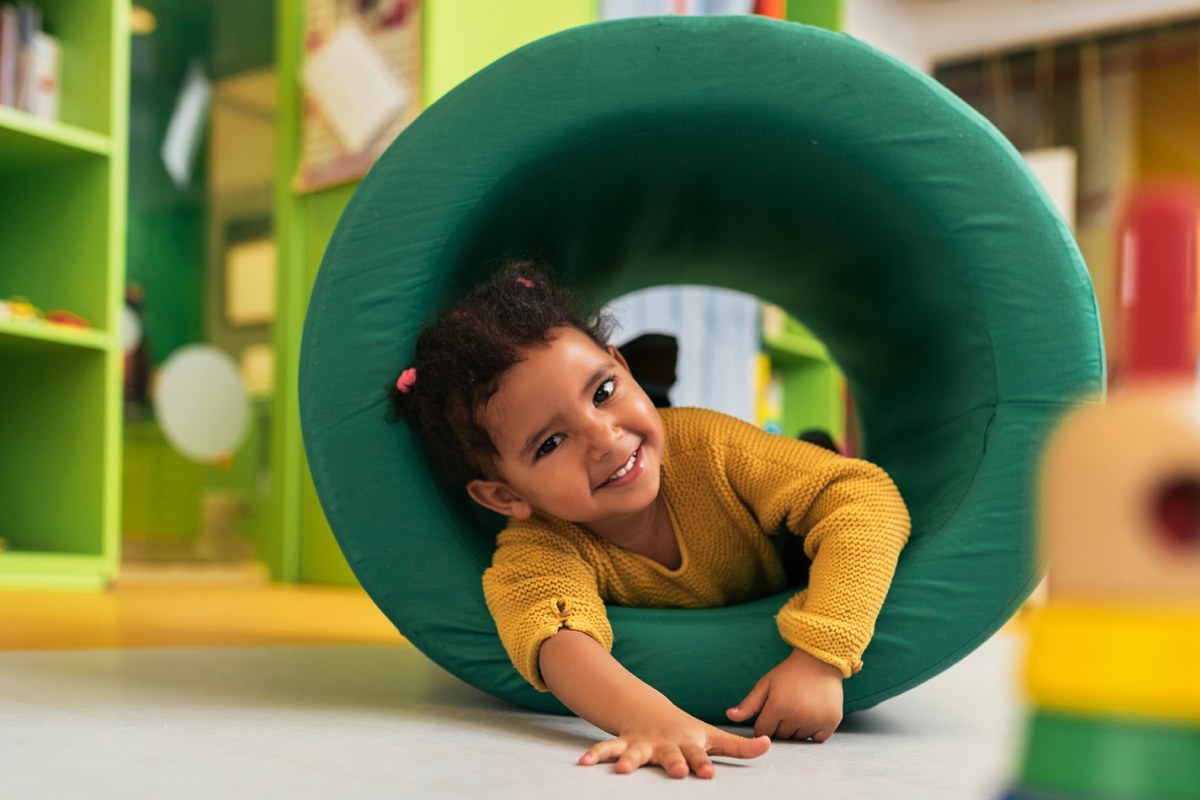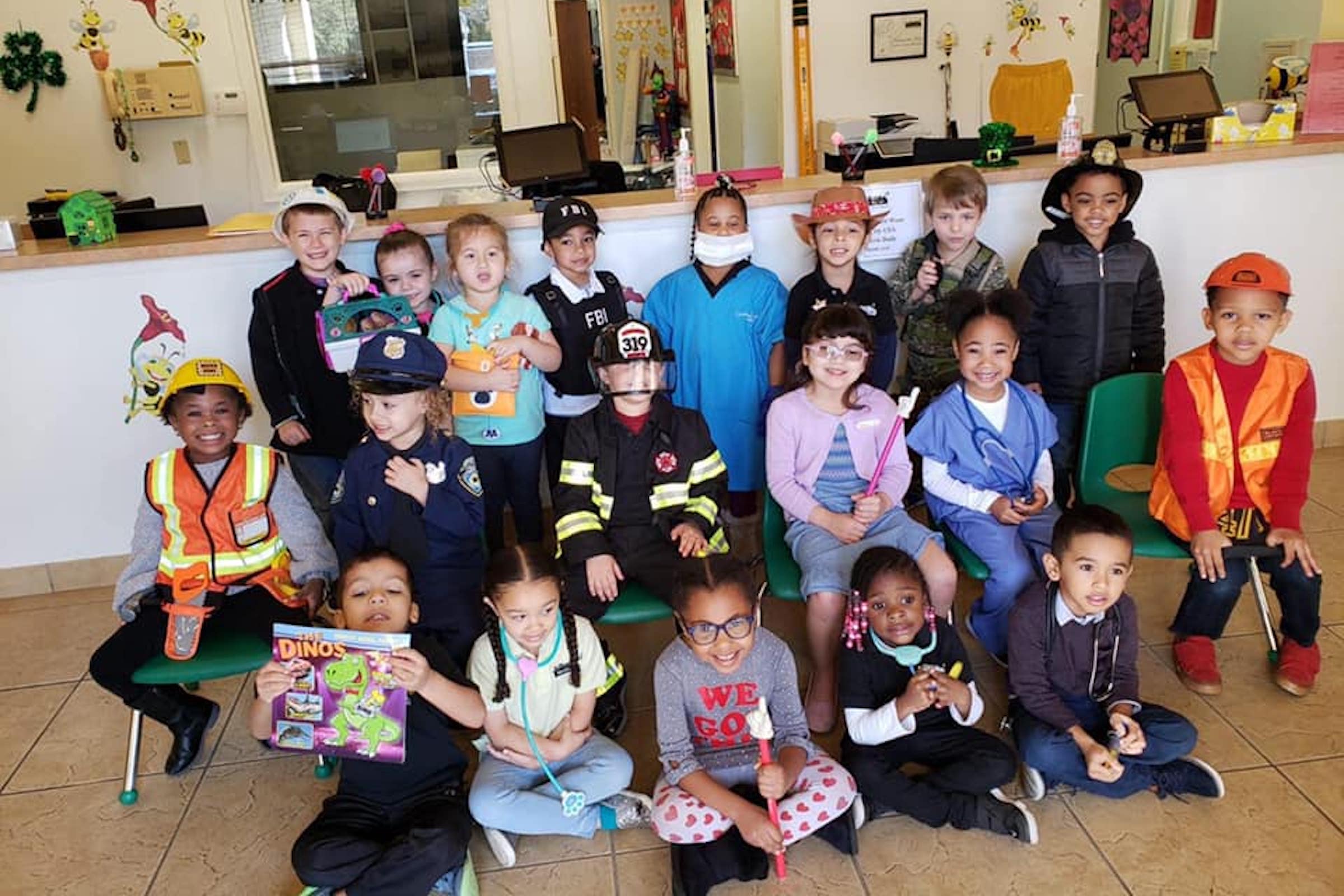Why Parents Rely On A Professional Child Care Center For Their Children
Wiki Article
The Function of Childcare in Fostering Social Skills and Early Understanding
Day care offers as a significant atmosphere for young kids, facilitating crucial social communications that promote early discovering. In this organized setting, children engage with peers and caretakers, developing vital interaction and teamwork abilities. As they navigate play and different tasks, they discover to resolve problems and develop psychological knowledge. Comprehending the nuances of these interactions reveals the profound effect daycare carries a kid's advancement, shaping their future connections and scholastic preparedness. What specific skills do children obtain in this setting?The Value of Social Communication in Day Care
While lots of moms and dads identify the relevance of very early childhood years education and learning, the function of social communication in day care is commonly taken too lightly. Childcare setups give youngsters with invaluable opportunities to involve with peers, cultivating necessary social abilities. Throughout these formative years, children learn to browse numerous social characteristics, such as sharing, participation, and conflict resolution. Interacting with varied age teams and characters improves their ability to adjust to various atmospheres and develop compassion in the direction of others.
Building Communication Skills Through Play
Play works as a powerful medium for children to build vital interaction abilities in childcare setups. With different play tasks, kids talk, reveal their thoughts, and learn to listen to others. Parlor games, as an example, urge them to make use of language in various contexts, advertising vocabulary growth and understanding of social hints.
In addition, storytelling during play allows kids to convey ideas and feelings, helping them develop narrative abilities and self-confidence in their verbal expressions. Generally, play not just functions as an enjoyable activity but likewise as a crucial platform for establishing the communication abilities essential for successful social interactions in later life.
Motivating Teamwork and Synergy
Participation and teamwork are important skills that kids can cultivate in day care settings. Via numerous team tasks, such as constructing projects or collaborative games, children learn to share duties and work toward typical goals. These interactions promote an understanding of the importance of listening to others, working out functions, and compromising when required.In daycare settings, caretakers often create possibilities for children to participate in team effort by encouraging them to take part in group jobs. This look at this site not just assists kids establish social bonds but also cultivates a feeling of belonging and neighborhood.
As they navigate these cooperative experiences, youngsters obtain beneficial understandings into the dynamics of dealing with peers. They discover to appreciate diverse viewpoints and identify that each member adds distinctly to the group effort. Inevitably, these early lessons together and team effort lay the foundation for much healthier connections and effective cooperation in future social and scholastic settings.
Structured Understanding Activities and Cognitive Advancement
Structured learning tasks play an essential role in promoting cognitive development in kids (Childcare North York). These tasks, which consist of challenges, narration, and hands-on experiments, boost vital reasoning and problem-solving skills. In a childcare setting, structured discovering encourages children to involve with their peers, boosting their ability to process info and recognize various ideas
Via directed play and interactive tasks, kids create fundamental skills such as numeracy and literacy. For example, activities focused around numbers can aid children understand mathematical ideas, while narration boosts language acquisition and comprehension. Additionally, structured discovering permits instructors to analyze developmental progress and tailor tasks to private understanding needs.

Integrating a varied variety of check structured tasks not only advertises cognitive growth however additionally prepares kids for future academic success. By supplying a well balanced setting that cultivates exploration and inquiry, daycare programs play an important role in shaping the cognitive abilities of young learners.
Cultivating Psychological Knowledge and Confidence
Emotional knowledge and confidence are vital components of a child's growth, enhancing the cognitive abilities fostered via structured understanding tasks. In day care setups, kids are offered with opportunities to share their emotions and take part in social communications, which are vital for developing emotional understanding. Through guided play and team activities, children discover to identify their sensations, recognize those of others, and create empathy.Interaction with caregivers and peers aids to grow self-esteem and strength. Positive reinforcement and inspiration from adults equip children to take dangers and face obstacles, promoting a feeling of accomplishment. As they browse social dynamics, kids construct confidence in their capacities to connect, collaborate, and resolve read this article problems - Daycare North York. This nurturing setting permits for the steady development of emotional knowledge, which is necessary for future interpersonal connections and general health. Therefore, daycare plays a considerable duty in fostering both psychological knowledge and confidence in children
Often Asked Questions
How Can Moms And Dads Pick the Right Day Care for Their Youngster?
Parents should think about variables such as location, personnel credentials, safety standards, curriculum, and evaluates from other moms and dads when picking the best daycare for their kid, guaranteeing it lines up with their kid's developmental requirements and household values.
What Age Is Ideal for Starting Childcare?

How Does Day care Influence Children's Actions in your home?
Daycare typically favorably affects kids's actions at home by boosting social skills, advertising independence, and motivating psychological policy (Child Care Center). Consequently, children might show improved interaction and cooperation, causing more unified household dynamicsExist Any Disadvantages to Daycare Attendance?
Yes, there are disadvantages to day care attendance, consisting of prospective separation anxiety, direct exposure to diseases, and irregular caregiving. These variables can influence a child's emotional well-being and modification in your home, affecting total family members characteristics.How Can Parents Support Social Skills Learned at Daycare?
Parents can support social skills learned at daycare by helping with playdates, motivating cooperative activities, modeling positive interactions, discussing feelings, and enhancing sharing and interaction in the house, therefore boosting their youngster's social advancement and confidence.Daycare serves as a significant environment for young youngsters, facilitating vital social communications that advertise very early discovering. Day care settings supply kids with invaluable opportunities to engage with peers, cultivating crucial social abilities. Play serves as a powerful medium for youngsters to build critical interaction skills in daycare setups. In day care settings, children are supplied with chances to reveal their emotions and involve in social communications, which are essential for constructing emotional understanding. Daycare typically favorably affects youngsters's habits at home by enhancing social abilities, promoting freedom, and motivating emotional guideline.
Report this wiki page